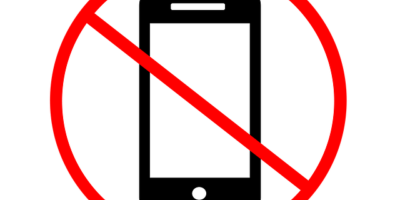Hello friends,
How’s it going?
This topic came up in my first week in South Africa, bound to end up as a topic to write about, but since then there were a whole load of topics I wanted to discuss at the same time. Finally, it’s come to this. Incredible what I have seen, you should have seen my face in the first month. Shocked at some drivers not putting their seatbelts on, shocked that most people drive and talk on their cell phone without no hands-free kit.
Currently, twenty-seven countries have banned driving with cell phones while some are still debating the topic. In the United States of America, some states have banned cell phones while driving. A lot of these twenty-seven countries have placed the ban somewhere between the years 2000 – 2003.
According to this article posted on the 11th December 2019, road accidents in South Africa costs South Africa R164 billion in excess. The last three years there has been a steady escalation of deaths.
South Africa’s road death statistics are appalling here’s a way to bring them down
A 2018 report on the link below by (WHO) World Health Organisation the global annual traffic deaths have reached 1.35 million and road traffic injuries are a leading killer for five to twenty-nine-year olds. According to this report, South Africa and Asia have regional rates of road traffic deaths that are higher than the global rate. Road traffic accidents are the eighth leading course of death for all age groups. https://www.who.int/violence_injury_prevention/road_safety_status/2018/en/
According to the article “South Africa’s road death toll expressed as a number per 100,000 inhabitants, is higher than the world and Africa’s averages.” From the report above, this is what is stated, “Despite the benefits of vehicle safety measure, only 40 countries have implemented seven or eight of the priority UN vehicle safety standards.”
This is how South Africa rounded off with regards to road accidents for the year 2018.
South Africa has the world’s poorest road safety records by WHO report
This article dated on in January 2019 states the following:
- Eastern Cape, 195 crashes with 238 fatalities
- Free State, 95 crashes with 159 fatalities
- Gauteng, 208 crashes with 219 fatalities
- KwaZulu-Natal, 267 crashes with 328 fatalities
- Limpopo, 138 crashes with 178 fatalities
- Mpumalanga, 123 crashes with 162 fatalities
- Northern Cape, 42 crashes with 54 fatalities
- North West, 93 crashes with 125 fatalities; and
- Western Cape, 125 crashes with 149 fatalities.
- 765,009 notices were issued.
- 4,016 vehicles were discontinued
- 2,967 vehicles were impounded and 8,507 motorists were arrested (2,223 arrests were for drunk driving and 775 for speeding).
In May 2019, this article stated the major cause of accidents are from distractions, 22% of accidents occur from texting. 52% change or search for a radio station and 32% eat and drink.
The 9 major reasons for accidents on South Africans roads in order are as follows:
- Distractions
- Drunk driving
- Speeding
- Reckless driving
- Pedestrians
- Weather
- Potholes (unmaintained roads)
- Tyres
- Brakes
In the United Kingdom, licences work according to a point-based system. It’s very strict, so strict that when you commit an offence on the roads courts can fine you and endorse your driving record with penalty points. It remains on your record from four to eleven years depending on how bad the offence was. With twelve penalty points, you are disqualified from driving, if attained in three years.
One solitary offence in using your phone while driving gives you an instant ban. Penalty points also do not help your insurance premiums.
In my book The South African: True Colours which is based on a true story I talk about the bribery and corruption in South Africa to such an extent that driving instructors tell their students which examiners take bribes.
If the percentage to pass in school has dropped to 30% can someone tell me how everyone is passing their learners’ test? Has the pass rate dropped there too and if so then there are a large number of drivers at risk to each other?
Readers look out for my upcoming article titled The good & smart ones go, the extortionists remain and make money from the desperation and vulnerability of others creating the same circle again and again – Licensed robbers in broad daylight.
What is going to happen to South Africa?
Yours sincerely,
T. Dench Patel
Thank you for the comments and support. Thank you for offering to donate if there was a donate button on here. I prefer not to take donations. You can support by either purchasing one of my books (Paperback or Kindle), The South African: True Colours, The South African: Roamer or my children’s book Light. These books can be found on Amazon mainly and other sites in your country.
The audiobook for The South African: True Colours is available on iTunes, Apple and Audible. The South African: Roamer and Light will be released soon.
Note: Do keep referring back to this site as much as possible, as I grow, a more profound perspective may form and so I will always come back to each of these articles to reevaluate them.









